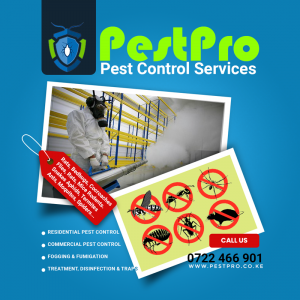5 Ways to Stop Ants Coming Into Your Home
Ants invading your home can be a common nuisance, especially during warmer months. To keep these tiny intruders at bay, here are five effective ways to stop ants from entering your home:
- Maintain Cleanliness:
One of the most important steps in preventing ants from entering your home is to maintain a clean environment. Ants are attracted to food crumbs, spills, and sugary substances. To keep them away:
- Wipe down countertops and tables regularly.
- Sweep and mop your floors to remove food particles.
- Store food in airtight containers.
- Don’t leave pet food out for extended periods.
- Take out the trash regularly and keep trash cans sealed.
- Seal Entry Points:
Ants often enter your home through small cracks and openings. Inspect your home for possible entry points and seal them up:
- Use caulk to seal cracks in walls, windows, and door frames.
- Replace damaged weather stripping on doors and windows.
- Check for gaps around utility lines and seal them with foam or caulk.
- Natural Deterrents:
There are several natural substances that can deter ants from entering your home. These include:
- Vinegar: Wiping down surfaces with a vinegar-water solution can mask the scent trails that ants use to navigate.
- Lemon: Lemon peels or lemon-scented cleaners can deter ants, as they dislike the scent of citrus.
- Cinnamon: Sprinkling ground cinnamon at entry points can be an effective barrier.
- Ant Baits and Traps:
Ant baits and traps can be a highly effective way to deal with an existing ant problem. These typically contain a sweet substance laced with ant poison:
- Place ant baits near entry points and ant trails.
- Use ant traps in areas where you’ve noticed high ant activity.
- Be patient, as it can take time for the bait to work, as ants bring it back to the colony.
- Regular Pest Control:
If you’re dealing with a persistent ant problem or have recurring issues, it may be worthwhile to seek professional pest control services:
- Pest control experts can identify the type of ants you’re dealing with and provide targeted treatment.
- They may also suggest long-term preventive measures to keep ants and other pests at bay.
In addition to these methods, it’s essential to remember that the key to preventing ants from entering your home is to be proactive. Regularly inspect your home for any signs of ant activity and address them promptly. By maintaining a clean and well-sealed environment and using natural deterrents or ant baits, you can significantly reduce the likelihood of ants invading your living space.
Ants Control | Effective Pest control in Nairobi Kenya
Ant Control in Pest Control Services
Ants are some of the most common and persistent pests that homeowners and businesses have to deal with. While a few ants may not seem like a significant problem, they can quickly multiply and become a nuisance. Effective ant control is an essential part of pest control services. Here, we’ll explore the methods and strategies used by pest control professionals to manage and eliminate ant infestations.
Identification of Ant Species:
The first step in ant control is to identify the species of ant causing the problem. Different types of ants may require different treatment methods. Common household ants, like the odorous house ant or the Argentine ant, can usually be controlled with basic methods. However, more challenging ant species, such as carpenter ants or red imported fire ants, may require specialized treatments.
Inspection and Assessment:
Pest control professionals perform a thorough inspection of the property to determine the extent of the infestation and the factors that may be attracting the ants. They look for entry points, ant trails, and nesting sites. Understanding the behavior and habits of the ants is crucial in developing an effective control plan.
Treatment Options:
Pest control services offer a range of treatment options for ant control. The choice of treatment depends on the ant species, the severity of the infestation, and the preferences of the homeowner or business owner. Common methods include:
- Baiting: Ant baits are an effective way to control ant colonies. These baits are placed in strategic locations where ants will find them and carry the toxic bait back to the nest, which eventually leads to colony elimination.
- Liquid Sprays: Liquid insecticides can be used to create a barrier around the property, preventing ants from entering. Some liquid sprays are also used directly on ant trails or nesting sites.
- Dusts and Granules: These are applied in and around the ant nesting areas. Dusts and granules can provide long-lasting protection and are particularly useful for difficult-to-reach locations.
- Residual Insecticides: These are applied to surfaces in the home or business to provide long-term ant control.
- Indoor and Outdoor Treatments: Depending on the infestation’s location, pest control professionals may use a combination of indoor and outdoor treatments to achieve the best results.
Preventive Measures:
A vital aspect of ant control is to address the conditions that attracted the ants in the first place. Pest control services often provide recommendations to homeowners or businesses on how to prevent future infestations. This can include advice on sealing entry points, keeping food storage areas clean and secure, and addressing moisture issues.
Regular Monitoring:

Ant control doesn’t end with a single treatment. Pest control professionals may recommend ongoing monitoring and maintenance to ensure that the ant infestation does not return.
Regular inspections and follow-up treatments may be necessary, especially in areas prone to recurring ant problems.
In summary, ant control in pest control services is a comprehensive process that involves identifying the ant species, conducting a thorough inspection, and choosing appropriate treatment methods.
The goal is not just to eliminate the immediate infestation but also to prevent future ant problems through effective pest management strategies.
Professional pest control services offer valuable expertise in dealing with ant infestations, ensuring that homes and businesses remain ant-free.

